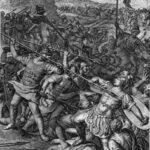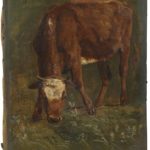The Torah states that not only was the plague of locusts unprecedented, but that it will never be repeated. However, the prophet Yoel describes a plague of locusts during the first temple period and says that this too was unprecedented in its severity. For that to be true, it must have been greater than the plague of locusts in Egypt, but the Torah seems to rule that out in advance.
- Rashi points out that Yoel (chapter 2:2) describes four sub-species of locusts ארבה, ילק, חסיל and גזם and explains the Torah as meaning that there will never be a plague of similar magnitude that consists of the species ארבה alone. On the face of it, however, this cannot be correct since Tehillim (78:46 and 105:34) recounts that the species ילק and גזם were included in the plague against the Egyptians. Rabeinu Bahya and others explain Rashi as meaning that the component of the plague consisting of the sub-species ארבה was greater in Egypt and the other sub-species put together were greater in the time of Yoel.
- Hizquni observes that Yoel describes the different subspecies of locusts as coming in waves (יתר הגזר אכל הארבה…), whereas the Torah apparently indicates that in Egypt they were all mixed up together, with ארבה serving as a general term for the entire species. Thus, the cumulative impact of the waves of locusts in the time of Yoel may have been greater though each individual wave was less than the plague in Egypt.
- Ralbag argues that the Torah means that there will never be a plague of similar severity in Egypt, but that there may be ones of equal or greater magnitude in other countries.
- Ramban argues that the Torah means that the plague of locusts in Egypt was greater than any of the periodic waves of locusts that affect countries from time to time according to the natural way of things. However, the Torah does not rule out God creating another supernatural plague of locusts that exceeds it.
- Rabeinu Hananel observes that Yoel only exhorted the people in the wake of a plague of locusts that had already happened, whereas Moshe announced the plague beforehand and initiated it by waving his staff. He explains that the Torah means there will never be another plague of locusts brought about by a prophet.
- Shadal interprets both the Torah and Yoel as employing rhetorical hyperbole, in which case the whole problem doesn’t arise.
For more on parshat Va’eira, see Haggadah Berurah, the Haggadah that helps you tell the story of yetziat mitzrayim.



Leave a Reply